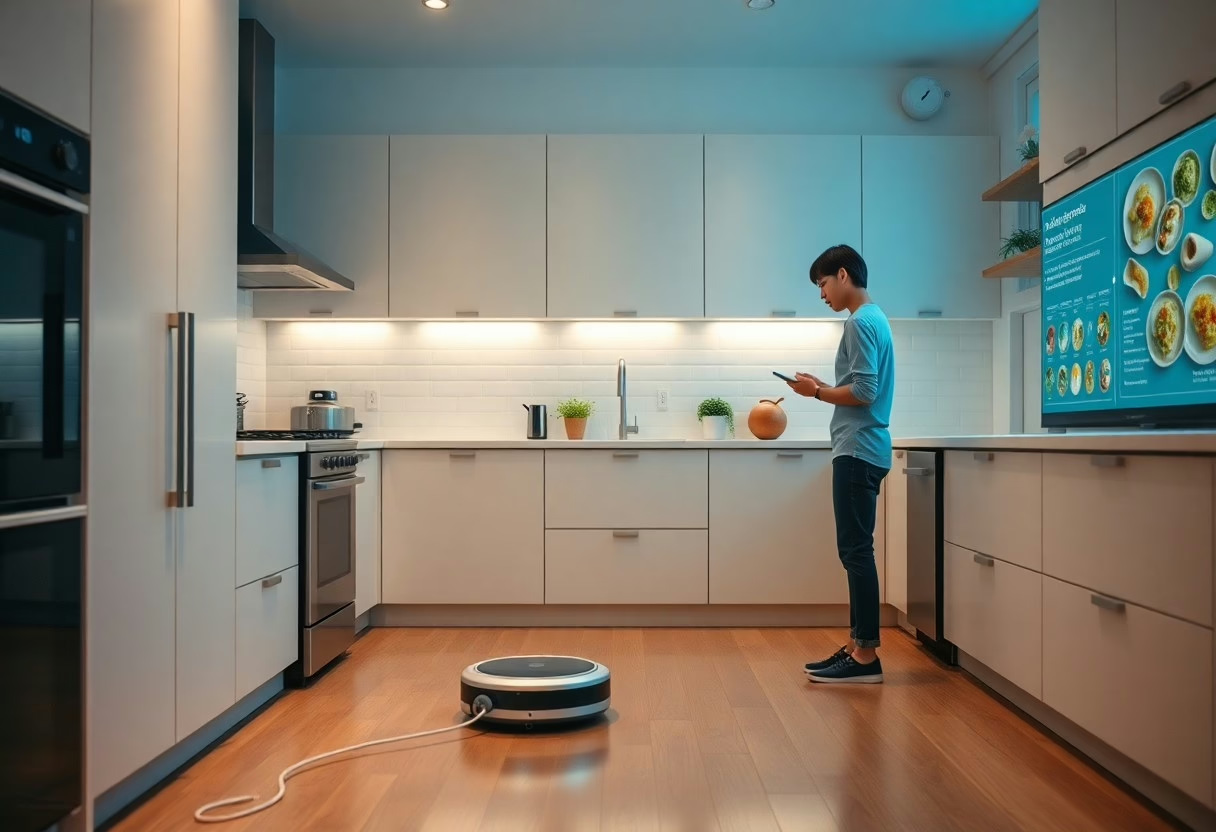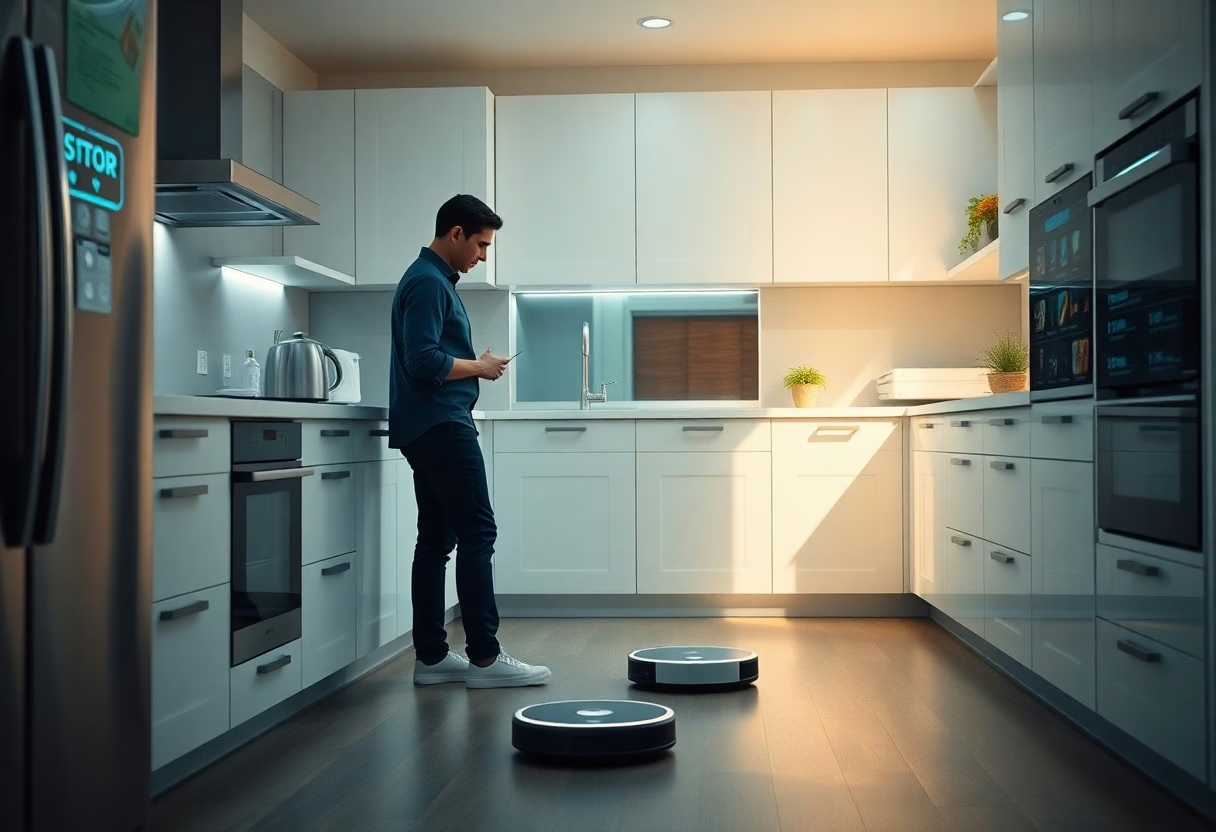Future advancements in artificial intelligence will significantly reshape your everyday life in ways you might not yet imagine. Over the next five years, you can expect AI to enhance personal convenience, improve accessibility, and revolutionize areas like healthcare, education, and transportation. As intelligent systems become increasingly integrated into your daily routines, understanding these changes will empower you to leverage technology more effectively and improve your quality of life.
The Seamless Integration of AI in Daily Routines
In the coming years, AI will effortlessly blend into your daily life, streamlining various tasks and enhancing your experiences. You’ll find advanced systems managing your schedules, customizing your preferences, and making your surroundings more comfortable. These innovations won’t just be standalone applications but will become integral to the technology you already use, offering a seamless and personalized interaction that feels natural and intuitive.
Imagine arriving home to a space that already anticipates your needs, thanks to AI-driven personal assistants. They’ll learn your habits and preferences, adjusting lighting, temperature, and appliance settings accordingly. Whether it’s preparing your home for a cozy movie night or ensuring your morning coffee is brewed just right, these intelligent systems will handle the chores, letting you focus on what truly matters.
Shopping and entertainment will see a transformation through AI-powered recommendations that cater specifically to your tastes. These systems analyze your past choices and preferences, offering personalized suggestions that feel tailor-made. As AI continues to evolve, the recommendation engines will become even more sophisticated, using real-time analysis to fine-tune their suggestions.
Revolutionizing Workplaces: AI as a Collaborator
In the next five years, AI will transform your workplace into a more efficient and collaborative environment. Rather than replacing human jobs, intelligent systems will augment your capabilities, enabling you to tackle more complex tasks while automating routine processes. As a teammate, AI will adapt to your workflow, offering insights, enhancing decision-making, and ultimately fostering a culture of innovation and productivity.
Automation driven by AI will empower you to focus on high-value tasks, minimizing the need for mundane work. By handling repetitive activities, such as data entry and scheduling, AI allows you to dedicate your efforts to creative problem-solving and strategic planning. This shift not only boosts your productivity but also leads to greater job satisfaction as you engage in more meaningful work.
AI tools will play a pivotal role in streamlining communication within your organization, ensuring that information flows seamlessly across teams. By utilizing advanced natural language processing, these tools can translate conversations, summarize meetings, or even gauge employee sentiment, fostering a more cohesive and connected workplace.

Navigation and Transportation: AI on the Move
As AI continues to evolve, your travel and navigation experiences are poised to undergo a remarkable transformation in the next five years. Enhanced algorithms and machine learning capabilities will ensure more accurate real-time data and improved route management, making your daily commuting less of a headache and more efficient.
AI-powered smart traffic systems will play a pivotal role in minimizing congestion during peak hours. By analyzing traffic patterns and adjusting signal timings dynamically, these systems will ensure smoother traffic flow. Imagine intersections operating with minimal delays while reducing travel time significantly—a welcome relief for your daily commute.
Autonomous vehicles are set to revolutionize how you think about transportation. With major companies continuously testing and refining their self-driving technologies, you can expect safer, more efficient journeys in the near future. These vehicles will not only alleviate the burden of driving but also reduce accidents caused by human error, ultimately making the roads safer for everyone.
Companies like Waymo and Tesla are leading this charge, with pilot programs already showcasing the potential of driverless technology. Data from the National Highway Traffic Safety Administration indicates that 94% of serious crashes are due to human error, highlighting the urgency for a shift.
AI in Health and Wellness: A Personalized Approach
Artificial intelligence is set to revolutionize health and wellness by providing personalized solutions that cater to your unique needs. From tailored fitness plans to customized nutrition advice, AI will analyze your data to enhance overall health outcomes. The integration of AI tools in healthcare environments will ensure that each individual receives targeted treatments, leading to better management of chronic conditions and overall well-being.
Predictive analytics will empower healthcare providers to anticipate health issues before they arise, allowing for timely interventions. By analyzing vast amounts of patient data, AI models can identify patterns indicating potential health risks. You’ll benefit from proactive care, as doctors will be able to recommend preventative measures and adjustments to your treatment plans based on predictive readings.
AI-driven fitness solutions will take your exercise routines to the next level by offering customization based on your specific goals and abilities. Wearable devices, equipped with AI algorithms, will track your heart rate, movement patterns, and overall activity to suggest modifications tailored to your current fitness level.
Ethical Considerations and Societal Impacts
The integration of artificial intelligence into daily life raises significant ethical and societal questions that you cannot overlook. Decisions made by AI can perpetuate bias, invade privacy, and impact job security—all requiring careful consideration. As AI systems become increasingly autonomous, accountability for their actions comes into question, prompting debates about the ethical implications of reliance on algorithms.
In an age where data fuels AI, your privacy is at risk like never before. Organizations increasingly collect personal information to improve AI functionalities, raising questions about consent and data protection. Laws such as GDPR strive to safeguard your information, but enforcement varies globally.
The rise of AI is likely to displace numerous jobs, particularly those involving repetitive tasks. While this may provoke anxiety about job security, it also emphasizes the necessity of reskilling and adapting to technological advancements. The World Economic Forum estimates that over 85 million jobs may be displaced by 2025, but approximately 97 million new roles could materialize—many requiring a combination of human skills and AI proficiency.
Preparing for an AI-Enriched Future
Your journey into an AI-enhanced everyday life requires an openness to change and adaptation. Embracing continuous learning will be important as technology evolves, shaping the skills you acquire to stay relevant in a job market increasingly influenced by AI. Consider enrolling in courses on data literacy, ethics in technology, or machine learning fundamentals to bolster your understanding. Ultimately, a proactive approach will empower you to harness AI’s capabilities while navigating its challenges effectively.


